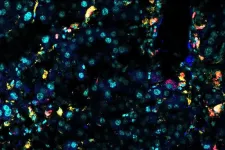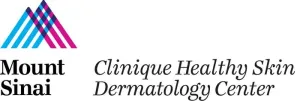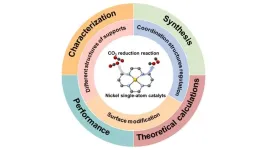(Press-News.org) Some immune cells in our bodies see their ‘killer instinct’ restricted after entering solid tumours, according to new research.
In a new paper published in Nature Communications, a team led by researchers from the University of Birmingham and the University of Cambridge found how immune cells called natural killer cells (NK cells) rapidly lose their functionality when entering and residing in tumours.
Using tumour cells grown from mice models, the team established that NK cells adopt a dormant state when entering solid tumours through the loss of production of key effector mechanisms used to promote immune responses including chemokines, cytokines, and granzymes. Further studies including cells taken from human colon cancers confirmed that the loss of function of natural killer cells happens in people too.
The team further tested whether the loss of function experienced by NK cells upon entering tumour environments could be reversed. Targeting the IL-15 pathway, which is currently being trialled in patients, resulted in significantly more NK cell activity and in the mice models, better tumour control.
David Withers, Professor of at the University of Birmingham and co-lead author of the study said:
“Natural killer cells are an exciting prospective field in the world of cancer treatment, using the body’s own immune system in the fight against cancer growth. Up until now though, we have seen that NK cells have the innate capacity to slow cancers but often seem to lie dormant within tumour cells. Using a mice model, we have been able to specifically see what happens to Natural killer cells after entering solid tumour environments – which seemingly blunts their killer instinct.”
“Crucially, the team also found that treating with Interleukin-15 could re-awaken the dormant killer instinct in the NK cells. This is a hugely exciting discovery that allays some of the fears we may have about how natural killer cells behave in tumour environments, and could pave the way for new types of treatment to add to the arsenal to tackle solid tumour cancers.”
Immune orchestrators stuck in cancers become “exhausted”
In a closely related study also published in Nature Communications, the research team led by Professor David Withers and Professor Menna Clatworthy also found that some dendritic cells (DCs), immune cell that play a key role in orchestrating anti-tumour immune response, get stuck within cancers.
The normal function of DCs is to capture material from cancer cells and deliver this to lymph nodes where they stimulate anti-tumour immune responses. The team discovered that rather than trafficking to lymph nodes, some DCs stay in the tumour, where they become “exhausted”, with reduced ability to stimulate anti-tumour immune responses, and upregulation of cues that could even reduce anti-tumour immune cell function. Identifying why these cells become trapped and how to overcome this impairment to normal DC behaviour has the potential to boost anti-tumour responses.
Menna Clatworthy, NIHR Research Professor and Professor of Translational Immunology at the University of Cambridge and co lead-author of the two studies said:
“We found that exhausted dendritic cells stuck in the tumour were located next to a type of tumour killer immune cell, CD8 T cells, potentially preventing them from doing their job. Remarkably, these dysfunctional tumour DCs could be revived using a cancer immunotherapy that’s used in the clinic. Our work helps develop our understanding of how cancers can disrupt the immune system, and crucially, how we can rescue this to improve anti-cancer immune responses.”
END
Immune cells lose ‘killer instinct’ in cancerous tumors – but functionality can be re-awakened
First study tracking how NK cells respond to the tumour microenvironment in real time discovered that stimulating the IL-15 pathway prevented the rapid loss of function and improved tumor control
2024-02-02
ELSE PRESS RELEASES FROM THIS DATE:
Did climate change trigger pandemics in antiquity?
2024-02-02
For their study in Science Advances, the researchers reconstructed temperatures and precipitation for the period from 200 BC to 600 AD, with a resolution of three years. This means that two data points cover a period of three years – an extremely high resolution for paleoclimate researchers. The period extends from the so-called Roman Climatic Optimum to the Late Antique Little Ice Age. This period also includes three major pandemics known from historians’ records: the Antonine Plague (around 165 to 180 AD), the Cyprian Plague (around 251 to 266) and the Justinian ...
Outstanding success in the Excellence Strategy: TU Dresden enters the next round with three new Clusters of Excellence initiatives
2024-02-02
As a result, TUD ranks second overall in the number of calls for proposals in the current competition nationwide. This is according to today’s joint announcement (February 2, 2024) by the German Research Foundation (DFG) and the German Science and Humanities Council (WR). An international panel of experts appointed by the DFG and the WR through the Joint Science Conference (GWK) has assessed a total of 143 draft proposals over the last few days and selected 41 as valuable funding opportunities.
In addition, TUD's three existing Clusters of Excellence have expressed their intent to the DFG that they wish to continue their outstanding research work. TUD, therefore, ...
HMSOM researchers: Data shows clinical trials becoming more inclusive
2024-02-02
Clinical trials and medical research have been historically lacking in diversity among all groups.
But recent trends have been turning the tide at least a little bit toward equity and inclusivity, according to a new meta-analysis published by a team of investigators from the Hackensack Meridian School of Medicine (HMSOM) and the Hackensack Meridian Health Research Institute (HMHRI).
The meta-analysis of clinical trials which included New Jersey patients from 2017 to 2022 show a snapshot of more diverse representation - and better reporting of race and ethnicity factors, according to the new paper in the Elsevier ...
CAR T cells show promise against age-related diseases in mice
2024-02-02
Highlights
Laboratory research led by MSK and Cold Spring Harbor Laboratory demonstrates the potential for CAR T cells to improve “healthspan” by eliminating senescent cells associated with aging-related diseases.
Not only was the treatment able to improve the metabolic function of aging mice and mice fed a high-fat diet, but it also proved protective against metabolic decline when given to younger mice.
The CAR T cell-based approach offers a powerful alternative to more traditional small-molecule drugs target senescent cells, supported by its long-lasting effects and the potential to fine-tune ...
Clinique partners with Icahn School of Medicine at Mount Sinai to establish the Mount Sinai-Clinique Healthy Skin Dermatology Center
2024-02-02
New York, NY (February 2, 2024) – Clinique and Icahn School of Medicine at Mount Sinai today announced a philanthropic partnership to establish the Mount Sinai-Clinique Healthy Skin Dermatology Center. The Center will develop forward-thinking research in dermatology, exploring the biological underpinnings of how skin ages, skin allergies and inflammatory or eczematous skin conditions, including eczema (or atopic dermatitis) and contact dermatitis. Rooted in a shared mission to conduct dermatological research that improves patients’ lives, the partnership will focus on applicable scientific discovery and leading-edge innovation to modernize allergy science in order to ...
Strategies for enhancing the performance of nickel single-atom catalysts for the electroreduction of CO2 to CO
2024-02-02
Electrocatalytic reduction of carbon dioxide (CO2) is considered as an effective strategy for mitigating the energy crisis and the greenhouse effect. Among the multiple reduction products, CO is regarded as having the highest market value as it is a crucial feedstock for Fischer-Tropsch process which can synthesize high-value long-chain hydrocarbons. Since the carbon dioxide reduction reaction (CO2RR) has complex intermediates and multiple proton-coupled electron transfer processes, improving the reaction activity and products selectivity remain two great challenges.
Single-atom catalysts (SACs) have the advantages of high atom utilization, tunable coordination structure ...
Brexit-induced spatial restrictions reveal alarming increase of fishing fleet’s carbon footprint
2024-02-02
In a study published today in Marine Policy, researchers have unveiled striking evidence that fisheries management decisions such as spatial fisheries restrictions can increase greenhouse gas emissions. The study, conducted by a team of scientists led by postdoctoral researcher Kim Scherrer at the University of Bergen, sheds light on the unforeseen consequences of policy changes on fishing fleets and their carbon footprint.
In the North Atlantic, international agreements often allow fleets to follow the fish across national borders. This allows fishers to catch the fish where it is most efficient. But when the UK left the EU (Brexit), ...
Scammed! Animals ‘led by the nose’ to leave plants alone
2024-02-02
University of Sydney researchers have shown it is possible to shield plants from the hungry maws of herbivorous mammals by fooling them with the smell of a variety they typically avoid.
Findings from the study published in Nature Ecology & Evolution show tree seedlings planted next to the decoy smell solution were 20 times less likely to be eaten by animals.
“This is equivalent to the seedlings being surrounded by actual plants that are unpalatable to the herbivore. In most cases it does trick the animals into leaving the plants alone,” said PhD student Patrick ...
Why are people climate change deniers?
2024-02-02
Do climate change deniers bend the facts to avoid having to modify their environmentally harmful behavior? Researchers from the University of Bonn and the Institute of Labor Economics (IZA) ran an online experiment involving 4,000 US adults, and found no evidence to support this idea. The authors of the study were themselves surprised by the results. Whether they are good or bad news for the fight against global heating remains to be seen. The study is being published in the journal Nature Climate Change. STRICTLY EMBARGOED: Do not publish before Friday, February 02, 11 a.m. CET!
A surprisingly large number of people ...
Epigenetic status determines metastasis
2024-02-02
Scientists from the German Cancer Research Center (DKFZ) and Heidelberg University investigated in mice how spreading tumor cells behave at the site of metastasis: Some tumor cells immediately start to form metastases. Others leave the blood vessel and may then enter a long period of dormancy. What determines which path the cancer cells take is their epigenetic status. This was also confirmed in experiments with human tumor cells. The results of the study could pave the way for novel diagnostic and therapeutic applications.
What makes cancer so dangerous? ...
LAST 30 PRESS RELEASES:
New tool reveals the secrets of HIV-infected cells
HMH scientists calculate breathing-brain wave rhythms in deepest sleep
Electron microscopy shows ‘mouse bite’ defects in semiconductors
Ochsner Children's CEO joins Make-A-Wish Board
Research spotlight: Exploring the neural basis of visual imagination
Wildlife imaging shows that AI models aren’t as smart as we think
Prolonged drought linked to instability in key nitrogen-cycling microbes in Connecticut salt marsh
Self-cleaning fuel cells? Researchers reveal steam-powered fix for ‘sulfur poisoning’
Bacteria found in mouth and gut may help protect against severe peanut allergic reactions
Ultra-processed foods in preschool years associated with behavioural difficulties in childhood
A fanged frog long thought to be one species is revealing itself to be several
Weill Cornell Medicine selected for Prostate Cancer Foundation Challenge Award
Largest high-precision 3D facial database built in China, enabling more lifelike digital humans
SwRI upgrades facilities to expand subsurface safety valve testing to new application
Iron deficiency blocks the growth of young pancreatic cells
Selective forest thinning in the eastern Cascades supports both snowpack and wildfire resilience
A sea of light: HETDEX astronomers reveal hidden structures in the young universe
Some young gamers may be at higher risk of mental health problems, but family and school support can help
Reduce rust by dumping your wok twice, and other kitchen tips
High-fat diet accelerates breast cancer tumor growth and invasion
Leveraging AI models, neuroscientists parse canary songs to better understand human speech
Ultraprocessed food consumption and behavioral outcomes in Canadian children
The ISSCR honors Dr. Kyle M. Loh with the 2026 Early Career Impact Award for Transformative Advances in Stem Cell Biology
The ISSCR honors Alexander Meissner with the 2026 ISSCR Momentum Award for exceptional work in developmental and stem cell epigenetics
The ISSCR honors stem cell COREdinates and CorEUstem with the 2026 ISSCR Public Service Award
Minimally invasive procedure effectively treats small kidney cancers
SwRI earns CMMC Level 2 cybersecurity certification
Doctors and nurses believe their own substance use affects patients
Life forms can planet hop on asteroid debris – and survive
Sylvia Hurtado voted AERA President-Elect; key members elected to AERA Council
[Press-News.org] Immune cells lose ‘killer instinct’ in cancerous tumors – but functionality can be re-awakenedFirst study tracking how NK cells respond to the tumour microenvironment in real time discovered that stimulating the IL-15 pathway prevented the rapid loss of function and improved tumor control







